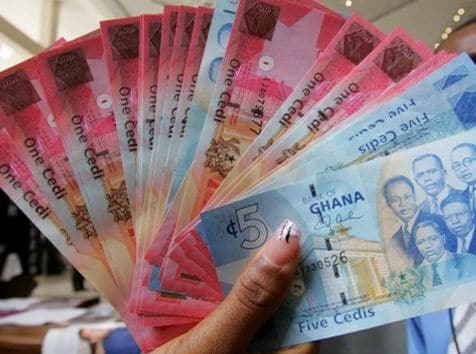The Ghana Stock Exchange (GSE) Composite Index ended 2018 with a negative 0.29 percent compared to the previous year’s 52.73 percent, mainly due to the cedi’s depreciation and the banking sector clean-up.
The domestic currency lost 8.39 percent of its value to the United States dollar in 2018, while the banking sector clean-up – which required universal banks to raise fresh capital of GH?400million – led to the collapse of seven indigenous lenders.
This, coupled with an increase in the rate of 91-day Treasury bills to 14.59 percent, the GSE said, impacted negatively on its performance last year.
Just like its Composite Index, the GSE Financial Stock Index also recorded a negative 6.79 percent return in 2018 compared to the positive 49.51 percent registered the year before.
“There were a number of macro-economic challenges that added to global difficulties. Interest rates on the 91-day Treasury bill inched up from 13.35 percent at the end of 2017 to 14.59 percent at the end of 2018, and the cedi lost 8.39 percent against a strong US dollar compared to a loss of 4.87 percent in 2017.
“There was also the distraction or focus of attention on the banking sector clean-up and recapitalization, as well as the results posted by listed issuers,” said Kofi S. Yamoah, the GSE’s Managing Director.
This was revealed at the 2018 Annual General Meeting of the GSE in Accra.
Meanwhile, Albert Essien – the Chairman, in his statement said the volume of shares traded for 2018 was 201 million shares valued at GH?659million, compared to volume and value of 322 million shares worth GH?518million registered in 2017.
Market capitalisation for all listed securities at the end of last year was GH?61.1billion, as against GH?58.8billion in 2017, representing an increase of 3.97 percent – with domestic capitalisation gaining 56.28 percent 2018.
Outlook for 2019
According to the Managing Director, a number of initiatives are being taken to ensure a better performance in 2019.
Key among them is the preparation and adoption of a new strategic plan for the exchange; irreversible steps toward demutualisation of the GSE; plans to acquire a market surveillance system; and GSE’s active support toward the introduction of a formal repo-purchase agreement for the country, as well as facilitating the Economic Community of West African States’ Secretariat to renew efforts toward integrating the sub-region’s capital markets.
All these, Mr. Yamoah added, are expected to bring about a positive performance by end of the 2019 business year.
Source: B&FT

